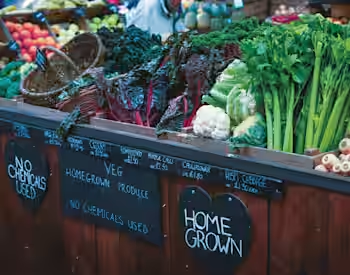Implementation of the UTP Directive: New requirements for companies in the food industry

The Act is to come into force before the end of this legislative period. It implements Directive (EU) 2019/633 of the European Parliament and of the Council of 17 April 2019 (UTP Directive) and contains numerous new regulations for companies in the food sector that are intended to protect producer companies from unfair conditions of large buyers, so-called prohibited trade practices.
Content of the new regulations to improve trading practices in the food supply chain
The prohibited trade practices are exhaustively enumerated in a black list and a grey list. They are intended to prevent farmers from being obliged to pay unjustified costs due to the supremacy of the food retail trade (LEH). Practices that are part of the black list are prohibited per se. Practices that are enumerated in the grey list are permissible if they have been explicitly and unambiguously agreed between the parties beforehand. A summary overview of the most important regulations can be found here.
Typical cases are, for example:
- the agreement of payment periods of the buyer vis-à-vis the supplier of more than 30 (for perishable agricultural, fishery or food products) or 60 days (for other agricultural, fishery or food products);
- the passing on to the supplier of costs for the return or removal of unsold products of the buyer;
- the unilateral amendment of the terms of the contract by the buyer, in particular with regard to the method, place, time or scope of delivery as well as the terms of payment;
- the short-term (less than 30 days) cancellation of perishable agricultural or food products, or
- the threat of retaliation against the supplier if the latter asserts its contractual or legal rights.
Scope of the law
The new law protects suppliers of agricultural, fishery and food production as well as suppliers active in the production of dairy and meat products, fruit, vegetables and garden products (e.g. potatoes) from larger buyers in the food sector. A prerequisite is that at least one of the contracting parties has its headquarters in the European Union.
Buyers with an annual turnover of EUR 2 million or more may be prohibited from engaging in the prohibited trade practices specified in the Act.
For suppliers in the agricultural, fisheries and food production sectors, the scope of protection of the law applies up to a turnover of EUR 350 million.
For suppliers in the production of dairy and meat products, fruit, vegetables and horticultural products up to a turnover of EUR 4 billion in the respective sales segment (a legal definition of the "segment" has unfortunately been omitted) in Germany. However, this only applies if the total annual turnover of the supplier does not exceed 20 percent of the total annual turnover of the buyer. This is to ensure that the regulations of the new law, as also intended by the UTP Directive, only contribute to limiting the bargaining power of significantly larger buyers vis-à-vis smaller suppliers and to counteract the imbalance that exists there.
The worldwide turnover of the group of companies is decisive for the calculation of the turnover of the companies.
Regulations apply along the entire supply chain
In future, the regulations of the new law will apply along the entire supply chain and thus not only to direct producers and the food retail sector as the final customer, but also to other companies in the processing and production chain, in particular also to producer associations at buyer and supplier level. The background to this is that farmers only rarely have direct contractual relationships with food retailers and the scope of application along the entire supply chain is intended to ensure that the new regulations do not run dry in practice. In addition to the food retailer, the addressees are therefore all intermediaries in the supply chain in order to avoid that the regulations of the new law do not apply only because the original producer does not have a direct contractual relationship with the food retailer.
Monitoring compliance with the regulations
To ensure that the regulations of the new law are also adhered to in practice, the Federal Agency for Agriculture and Food (Bundesanstalt für Landwirtschaft und Ernährung, BLE) monitors compliance with the regulations together with the Federal Cartel Office. It is entitled to impose fines of up to EUR 500,000 and to issue interim injunctions. In addition, an independent ombudsman's office will be created to which anonymous complaints can be submitted. The ombudsman's office forwards complaints to the BLE.
Comment
The implementation of the UTP Directive is an important aspect of the German government's plan to strengthen farmers' conditions (for a complementary overview of how production conditions in the supply chain will be improved, see here).
The regulations are relevant for existing contracts as well as for new contracts to be concluded: For new contracts, they apply immediately upon entry into force of the Act. For existing contracts, an adjustment period of one year applies. Companies are therefore also advised to review their existing contracts for a possible need to adapt them.
If you have any questions, please do not hesitate to contact Raoul Schätzler or Sara Bandehzadeh.
Links
Communication of the Federal Government on the implementation of the UTP Directive (German version only)
Communication from the German Bundestag - Combating unfair trading practices in agricultural supply chains discussed (German version only)
Draft law and adaptations (German versions only)
Overview: The new German Supply Chain Act - consequences for businesses | Fieldfisher
